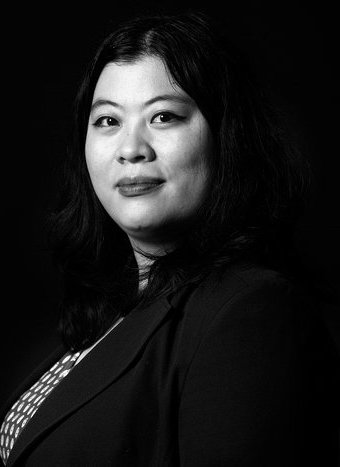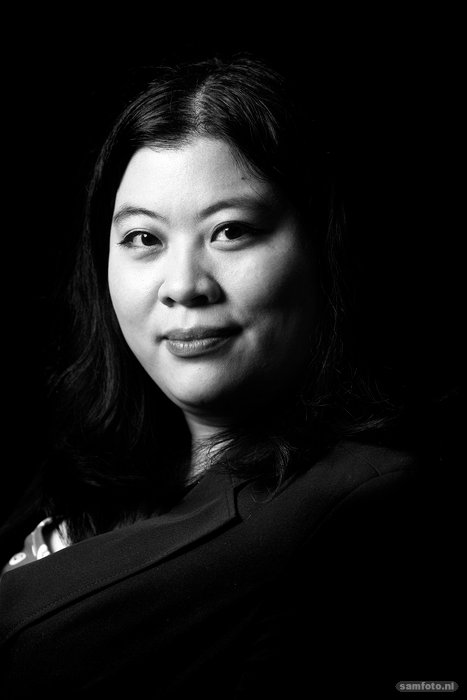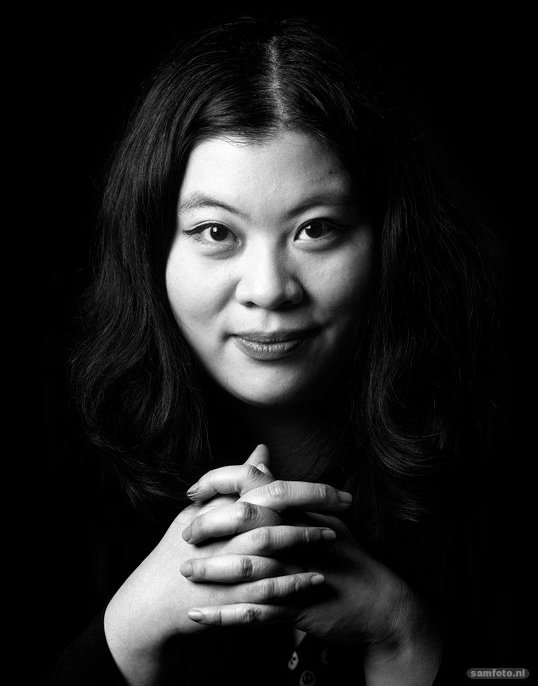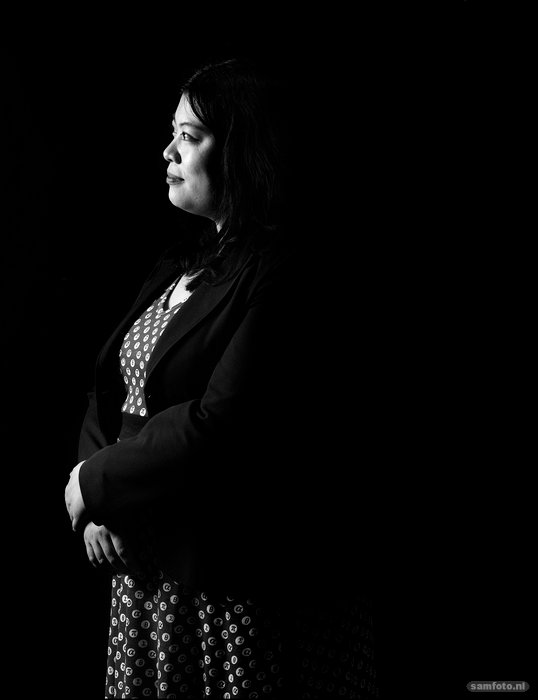‘Resilience should not be an excuse for demanding even more’
With her appointment as a Young Academy member, computer scientist and pianist Cynthia Liem intends to call for greater focus on academic reflection. What drives her?
On March 23, you will become a member of the KNAW (Royal Netherlands Academy of Arts and Sciences) Young Academy. What will you bring to the role?
“It’s a very interesting position that enables young academics not yet in decision-making positions to make a contribution to the debate and so still exercise an influence on policymakers. I’m continually reflecting, asking what it means to be an academic. I intend to bring that to my activities on behalf of the Academy. For example, by calling for greater focus on the nuances behind data-driven science.”
Is there room for these nuances in the world of AI?
“I think this focus is starting to happen, thanks to the debate in society about issues like AI. But the AI field is so popular that it’s hysterically oversubscribed. Everyone suddenly wants to ‘do something with AI’ and there’s lots of competition. This sometimes leaves little room to take a step back and ask questions that not everyone may be expecting. If I allow myself to be driven by ‘publish or perish’ culture, problems are only interesting if I can devise a new, more complex algorithm for them. After all, that’s something I can publish about. But if I focus on the original, often societal problem, I need to ask questions like: are the data really suited for an algorithm? Do I need more context about the problem? Do I really need to develop a new algorithm? Or would it be better to opt for techniques that are a decade old – simpler, yet also easier to understand as a result?”
How do you integrate this in your work at the moment?
“I worked on a project with organisational psychologists who wanted to use AI for job applications. Then, the choices you make really matter, because you can quickly run the risk of discrimination or historical bias. For example, very few women held leadership positions in the past, so if you’re not careful you can end up suggesting that women don’t make good leaders. During the project, it occurred to me that my psychologist colleagues and I needed to learn to understand each other’s jargon and basic techniques better. Rather than writing a traditional paper, I focused on that communication. I’ve written several more educational texts on the subject of how psychologists and AI experts should talk to each other.”
You’re not only a computer scientist, but also a trained pianist. How did you manage that?
“It wasn’t easy. As well as working overtime a lot in order to be successful in both, I had to move mountains just to be allowed to do this combination. The academic counsellor at Delft opposed it, suggesting that doing two programmes prevents you from focusing. At the Conservatoire, I also faced a wall of red tape because they only support joint programmes with Leiden. So, I thought I’ll do it myself. I negotiated my timetable with individual lecturers. It worked. When I’d completed both programmes, I was told that I’ll eventually have to decide between music and computer science. But I’ve never actually wanted to make that choice. I’ve never wanted to make that compromise.”
Where does that refusal to choose come from?
“That’s a difficult one. I think it’s always been part of me. I like doing several things simultaneously. So, I combine music and computer science in a way that I believe in. It’s an unusual combination, so I have few role models. But a more traditional path, with just a single focus, would never make me happy. If that were the more logical step towards a top career, I’d never pursue it.”
They seem so contradictory – computer science and classical music.
“Yes, at first glance it seems like hard data versus emotion. But my way of thinking as a musician is something I also use in my academic work, and vice versa. As a computer scientist, you learn how to extract information, generalise and work systematically. As a musician, you actually do the same. You ask yourself: will it be sufficient to play it this or that way? How should I compare my interpretation to those of others? It’s exactly these kinds of questions that you need to ask for responsible use of AI.”
How do you prevent the musician in you from being drowned out by the computer scientist?
“By setting clear priorities. For example, as a pianist, I no longer prioritise my solo repertory, which involves having to learn traditional works by heart. I now focus on chamber music. Fortunately, my musical colleagues don’t depend on me economically and we’re selective in the offers we accept. That creates freedom and space for my academic work. But that selectivity also makes me freer as an artist.
It gives me the freedom to programme a more unusual repertoire outside ‘the classics’, featuring work by relatively unknown composers for example.”
How do you feel about the effect of the coronavirus on the world of music?
“What’s currently happening is paradoxical. People are stuck at home and my concerts have been cancelled. But if you look at how people react to music or other things that distract from the daily grind, I get the feeling that we realise more than ever how much we need them. At the same time, the arts are the first area to be cut and the last to receive state support. Many musicians have simply given up as a result. That’s painful to see. But I’ve also noticed that other musical colleagues have shown huge resilience and managed to reach people digitally with all kinds of new creative initiatives.”
You mention resilience. What does resilience mean to you?
“Let me take a controversial stance on this. In January, we had the Week of Resilience. The problem I have with the term ‘resilience’ is that it can easily become an excuse for saying: ‘Hey guys, let’s keep at it, we can do even more.’ For me, resilience is actually about having the space to do things differently. To take a step back, think about deeper questions and then incorporate them in your field. For me, it means having the room to say ‘no’ if necessary. Saying something doesn’t work is often seen as a weakness. When, actually, saying no also means that you’re much more flexible when things occasionally go wrong.”
Academics were already under pressure and the coronavirus has not improved things. Is there enough space for resilience in the academic world?
“Covid-19 is having a particularly huge impact on young families. If you have additional care duties, you automatically become less productive as an employee. As an academic, you probably also publish less. In the future, will we reward someone who has been more productive output-wise? That automatically means incentivising a certain type of lifestyle for senior academic positions. I don’t think we should be doing that.”
How can we minimise the effect of the crisis on people’s academic careers?
“By everyone agreeing that we’ll do things differently. There is already an ongoing discussion at the university about alternative forms of recognition. I hope to be able to contribute actively to this, both with the Young Academy, and also in my role as chair of the EEMCS faculty personnel committee. We need to stop blindly counting
publications. Not only because the crisis is unfairly affecting productivity, but also because traditional publication doesn’t always deliver the most impactful output for society. We need to free up time to think about why scholarship and engineering really matter. And how we can shape HR policy accordingly in a way that is clear and as concrete as possible.”
You said compromises are not in your nature. Will you continue to work at the university if things don’t change?
“In its current state, the university still places far too much emphasis on the traditional idea of a specialist scholar. That’s definitely not my ideal scenario. But I still think it’s the best place for me. Universities are public institutes, where you’re more visible and more independent than at a company, for example. TU Delft has also identified social impact as a strategic theme. And I’m educating the computer scientists of the future. What more could you want?”



